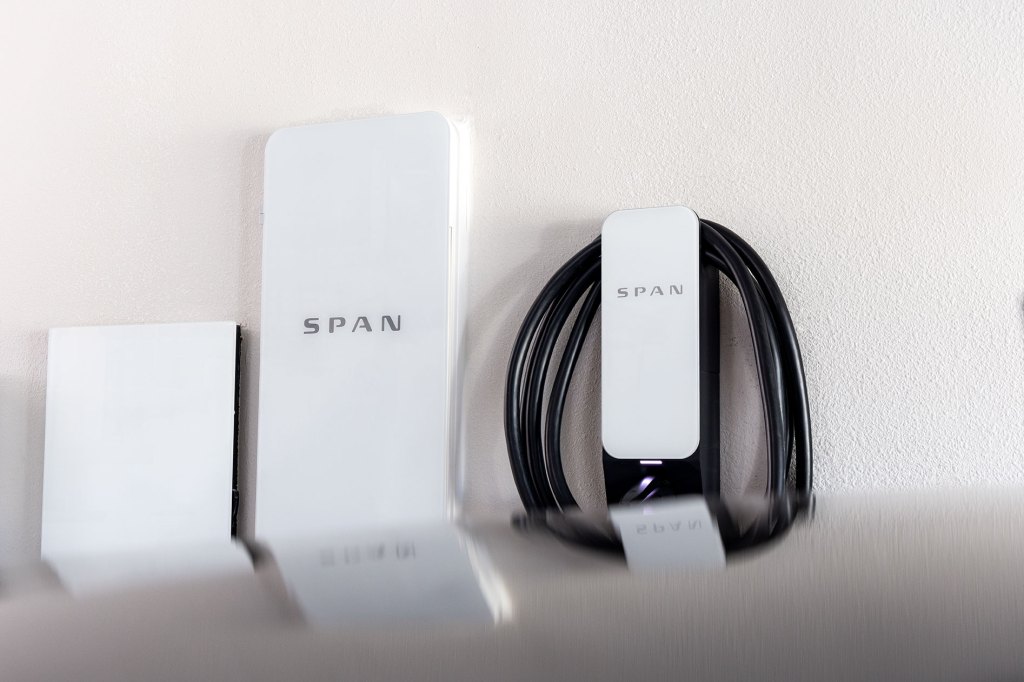Picture this: Fast-growing startup raises a high eight-figure round. Then, a year later, it decides to raise another. Investors line up, and this time they pledge more money while giving the company a healthy valuation bump.
What’s wrong with this picture? It’s 2023, a year in which plenty of investors have rolled up the welcome mat, and the company in question isn’t a fintech or a web3 or even a SaaS startup. But bucking the trend is Span, a hardware-focused climate tech company that’s trying to replace the home electrical panel, a device most people only think about when the hair dryer causes the lights to go out.
Just a little over a year ago, Span announced that it had closed a $90 million Series B that valued the company at $410 million pre-money. Today, the startup is announcing a $96 million Series B2 that values it at $600 million. (Why B2 and not an extension? Because the company was able to raise its valuation following the initial Series B.) The round was led by Wellington Management with participation by existing investors including Congruent Ventures, Capricorn Investment Group and Alexa Fund.
“As we were looking at both our own growth aspirations and extraneous factors,” Arch Rao, founder and CEO of Span, told TechCrunch+, “and as we look at programs like the Inflation Reduction Act, we actually see the opportunity to accelerate over the course of this year or next year. And that’s what prompted the idea of bringing in additional capital.”
The Inflation Reduction Act hasn’t changed the company’s business model, but it has changed its business plans, Rao said. “It’s helped us pull forward our addressable market by at least five years.”
Here’s how: The law, which was passed in August 2022, offers numerous incentives to encourage people to electrify their lives. In many cases, that will mean upgrading the electrical panel, the hub that connects the grid outside the home with the network of wires inside. Part of Span’s pitch is that it can intelligently manage the loads inside the home. The company’s EV charger, for example, will talk with the panel to determine the maximum possible charging rate based on other loads within the home. Because of that dynamism, homeowners may not need to upgrade their electrical service from the street.
The IRA offers home and property owners up to $4,000 to upgrade their electrical panel, with lower-income households qualifying for the full rebate. Previously, Span’s customers tended to be higher-income homeowners — not surprising, given that its panel retails for $4,500, just shy of 10 times the cost of a traditional box with breakers. But the incentives mean that the smart panel is basically free for low-income households. When paired with the company’s charger, which would also benefit from IRA rebates, Span could pave the way for those same households to charge an EV at home (used models are now eligible for rebates, too).
“With the economics being so favorable with rebates, we’re able to serve folks that are perhaps more impacted by power outages, perhaps more impacted by the cost of natural gas rising,” Rao said. “That was very meaningful, because ultimately, we want to be in 10 million households or so by the end of the decade. And we’re not going to do that if you’re only serving the rich customers.”
Rao said that the new funding will go toward new products, specifically new panel sizes. Right now, the company makes one size that can handle up to 200 amp service, which is typical of most modern single-family homes. Span is working to develop both larger and smaller panels. Larger sizes will serve particularly large homes and multifamily buildings, while the smaller sizes are better suited for individual apartments or subpanels that were installed as part of an addition or a previous electrical upgrade. It all uses the same “core IP,” Rao said, which is a circuit board with the compute power of an Android phone.
The fact that Span can raise another sizable round so closely on the heels of the last is suggestive of a few things. For one, climate tech remains appealing to a broad swath of investors not just those who focus on the sector. It also suggests that hardware-centric startups, perhaps counterintuitively, might be stronger in the long run. Because hardware is, well, hard to pull off, a solid team can build a substantial moat in a way that’s much harder for software teams. Combine all that with clearly aligned government policies, and you’ve got a winning combination that is ready to buck market trends. Shocking, I know.































Comment